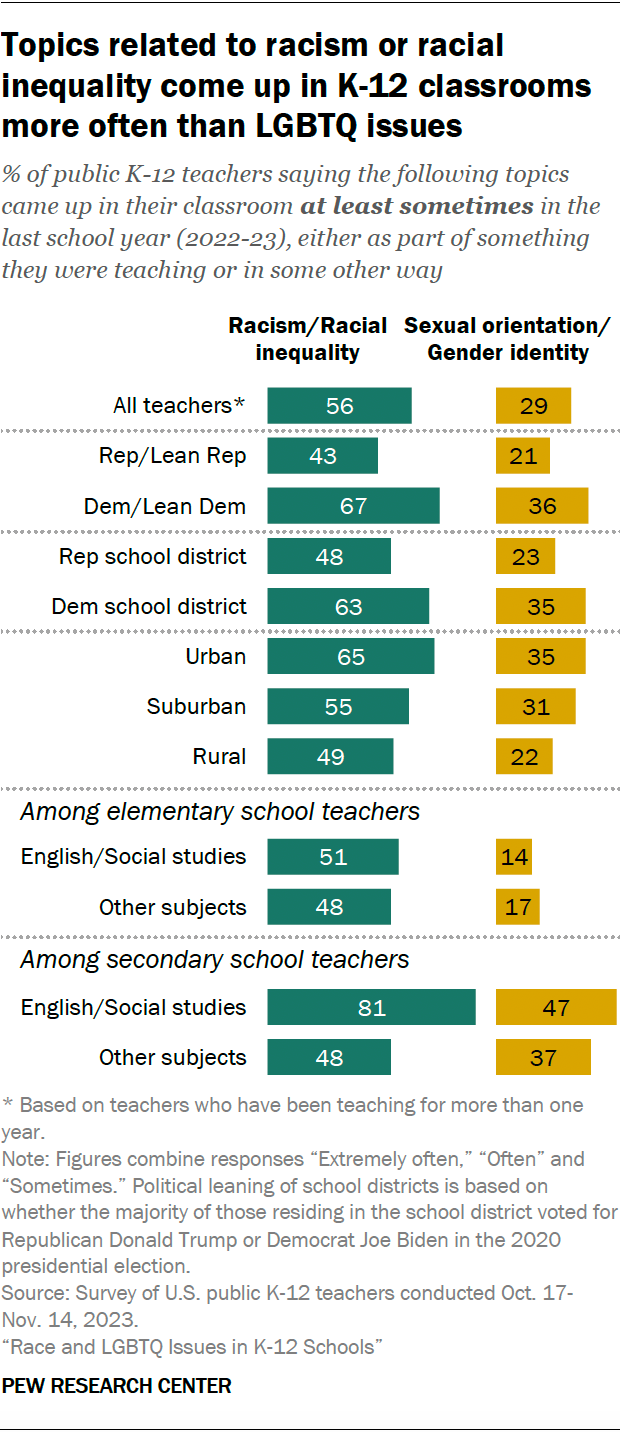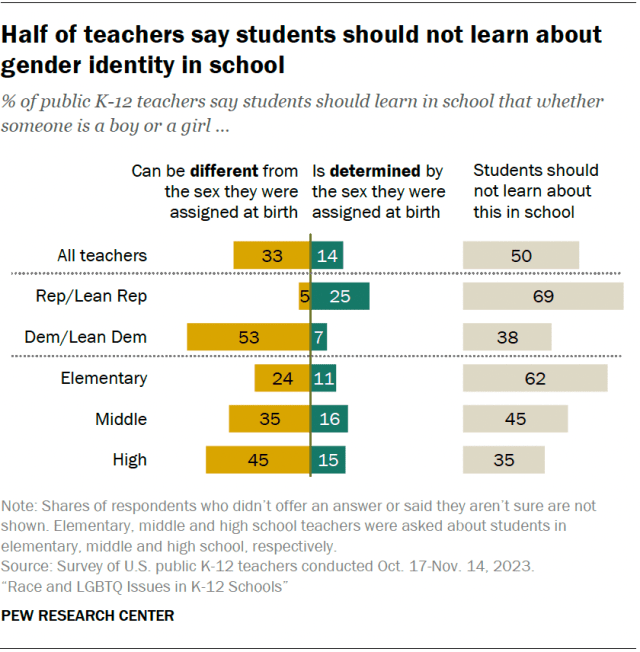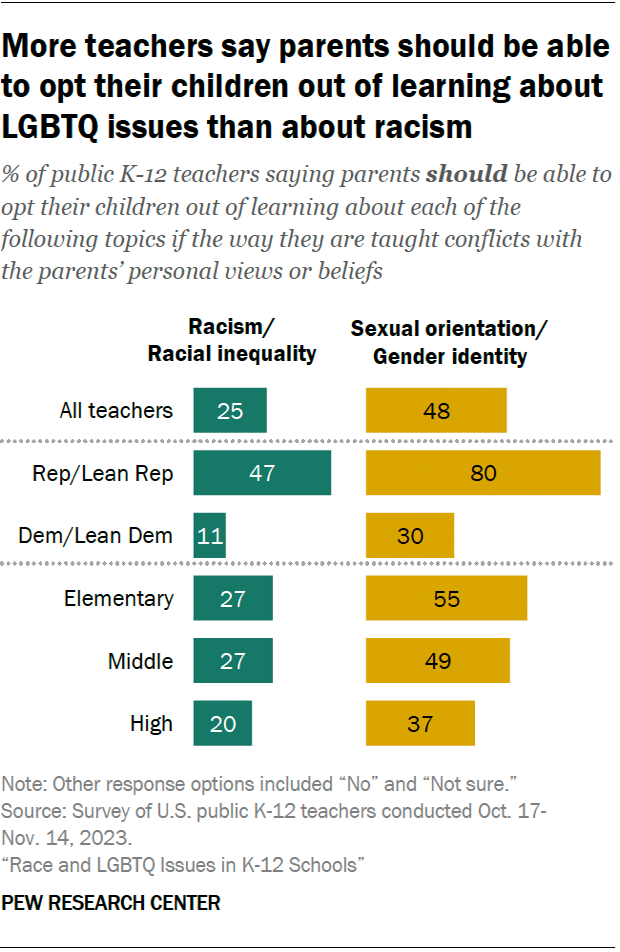To understand how conversations about race and LGBTQ issues are playing out in schools, we asked public K-12 teachers who have been teaching more than one year how often these topics came up in their classroom in the last school year (2022-23).

- A majority of teachers (56%) say topics related to racism and racial inequality came up at least sometimes.
- 29% say the same about sexual orientation and gender identity.
By large margins, Democratic teachers are more likely than Republican teachers to say these topics came up at least sometimes in their classroom:
- 67% of Democratic and Democratic-leaning teachers versus 43% of Republican and Republican-leaning teachers say this about topics related to racism or racial inequality.
- 36% of Democratic teachers versus 21% of Republican teachers say this about sexual orientation and gender identity.
In addition, teachers in Democratic school districts (those where a majority of residents voted for Joe Biden in the 2020 election) are more likely than those in districts that voted for Donald Trump to say these topics came up in their classroom. Republican and Democratic teachers in Democratic school districts are more likely than their counterparts in Republican school districts to have these topics come up.
These topics are also more likely to come up in urban and suburban schools than rural schools, and in secondary schools than elementary schools. Secondary school teachers who teach English or social studies are the most likely to say these topics come up.
What teachers think students should learn about slavery and gender identity
The survey asked teachers what they think students should learn about slavery and gender identity in school. For these questions, we asked elementary, middle and high school teachers about elementary, middle and high school students, respectively.
The legacy of slavery

Most teachers (64%) say students should learn that the legacy of slavery still affects the position of Black people in American society today.
A much smaller share (23%) say students should learn that slavery is part of American history but does not affect the position of Black people in American society today.
Democratic teachers are much more likely than Republican teachers to say students should learn that slavery still affects the position of Black people today (85% vs 35%). Black teachers are more likely than White and Hispanic teachers to say this, and middle and high school teachers are more likely than elementary school teachers to say this.
Gender identity
A third of teachers say students should learn in school that whether someone is a boy or a girl can be different from the sex they were assigned at birth.

A smaller share (14%) say students should learn that whether someone is a boy or a girl is determined by the sex they were assigned at birth.
Half of teachers say students should not learn about gender identity in school at all.
By a large margin, Democratic teachers are more likely than Republican teachers to say students should learn that someone’s gender can be different from their sex at birth (53% vs 5%). Most Republican teachers (69%) say students should not learn about this topic in school at all.
The majority of elementary school teachers (62%) say elementary school students should not learn about gender identity in school. Some 45% of middle school teachers say the same about middle school students, while 35% of high school teachers say high school students shouldn’t learn about this in school.
Still, more elementary, middle and high school teachers say students should learn that gender can be different from sex at birth than say students should learn that gender is determined by sex at birth.
We asked parents of K-12 students in fall 2022 what they thought their children should learn in school about the legacy of slavery and gender identity. On both topics, parents’ views were more evenly split than the views of teachers.
For teens’ views on what they should learn about these topics, read Chapter 3 of this report.
Should parents be able to opt their children out of learning about race and LGBTQ issues?

When asked if parents should be able to opt their children out of learning about certain topics, if the way they are taught conflicts with parents’ personal views or beliefs:
- 48% of teachers say yes when it comes to sexual orientation or gender identity.
- 25% say yes when it comes to topics related to racism or racial inequality.
On both topics, Republican teachers are more than twice as likely as Democratic teachers to say that parents should be able to opt their children out of learning about these topics.
And elementary and middle school teachers are more likely than high school teachers to say that parents should be able to opt their children out.
For the general public’s views on parents opting children out of learning about race and LGBTQ issues, read Chapter 4 of this report.




